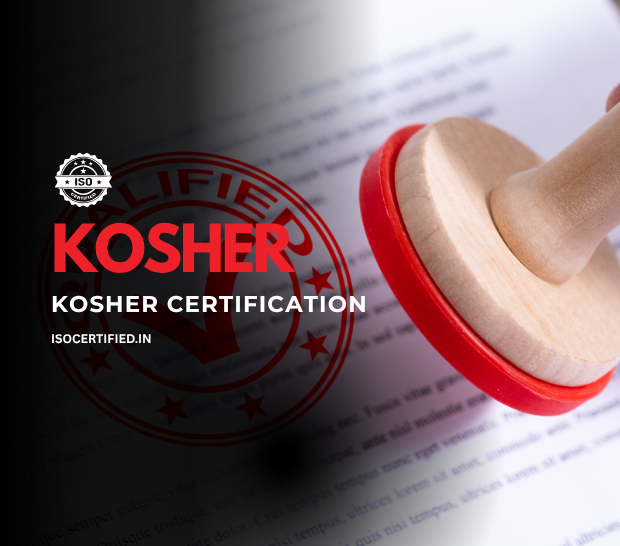- Globally Recognized Certification
KOSHER - Kosher Certification
Kosher Certification verifies that food products, ingredients, and production processes comply with Jewish dietary laws (Kashrut) as supervised by rabbinical authorities. This certification ensures proper ingredient sourcing, equipment sanctification, and processing methods meet strict religious requirements for consumption by observant Jewish communities.
Request A Free Quote
What is KOSHER – Kosher Certification
Kosher Certification is a religious compliance verification confirming that food products adhere to Jewish dietary laws derived from Torah and Talmudic interpretations governing permissible foods, ingredient combinations, and preparation methods. This certification requires separation of meat and dairy products, prohibition of specific animals and seafood, proper animal slaughter methods (shechita), removal of blood, and exclusive use of kosher-approved ingredients and additives. Rabbinical supervisors (mashgichim) conduct facility inspections, ingredient reviews, equipment kashering (purification), and ongoing production monitoring ensuring complete conformance with Kashrut standards.
The certification process involves comprehensive ingredient disclosure, supplier verification, production line inspection, equipment dedication or kosher preparation, and establishment of supervision protocols. Certified facilities must maintain strict segregation between kosher and non-kosher products, implement cleaning procedures meeting rabbinical requirements, and allow periodic unannounced inspections. Different kosher symbols indicate various certification levels including pareve (neutral), dairy, meat, and Passover-compliant designations, each requiring specific production controls and rabbinical oversight.

- Benifits
Key Benefits of KOSHER Certification
This certification expands market reach beyond Jewish consumers, signals quality and cleanliness perception, increases retail distribution opportunities, and appeals to health-conscious consumers seeking additional food oversight.
Expanded Consumer Base
Access diverse consumer segments including Jewish, Muslim, vegetarian, lactose-intolerant, and health-conscious buyers seeking certified quality products.
Retail Placement Advantage
Gain preferential shelf space in mainstream supermarkets and specialty stores where kosher products command dedicated sections and premium positioning.
Quality Perception Enhancement
Leverage kosher certification as implicit quality signal that consumers associate with rigorous ingredient scrutiny and production cleanliness standards.
International Export Opportunities
Facilitate entry into global markets where kosher certification is valued, particularly in Europe, South America, and regions with significant Jewish populations.
- Standard Process
Your Path to ISO Certification
Four straightforward steps to achieve ISO certification: consultation, documentation, payment, and certificate delivery—all managed remotely for your convenience.
Free Consultation
Connect with our ISO experts to discuss your certification needs and requirements.
E-mail Documents
Submit your organization's documents and information securely via email.
Make Payment Online
Complete your payment conveniently through our secure online payment gateway.
Get ISO Certificate
Receive your internationally recognized ISO certification upon successful audit completion.
- Which Industries?
Who Needs This
Food manufacturers, ingredient suppliers, restaurants, catering services, and packaged goods producers targeting Jewish consumers or quality-conscious markets require kosher certification. Companies seeking retail distribution in major supermarket chains benefit significantly from this credential.
Food Manufacturing & Processing
Bakery & Confectionery Products
Beverage & Dairy Production
Catering & Food Services
- Ongoing Requirements
Compliance & Maintenance
Post-certification, organizations must fulfill ongoing requirements including annual surveillance audits, internal reviews, and recertification to maintain their ISO certificate validity.
Annual Surveillance Audits
Certification bodies conduct yearly audits to verify continuous compliance with ISO standards and ensure your management system remains effective and up-to-date.
Recertification Every 3 Years
Complete recertification audit required every three years to renew your ISO certificate and demonstrate sustained commitment to quality management excellence.
Internal Audits & Reviews
Regular internal audits and management reviews must be conducted to monitor performance, identify improvements, and prepare for external certification audits.
Documentation & Training Updates
Maintain current documentation, update procedures for process changes, and provide ongoing training to employees on ISO requirements and their responsibilities.
